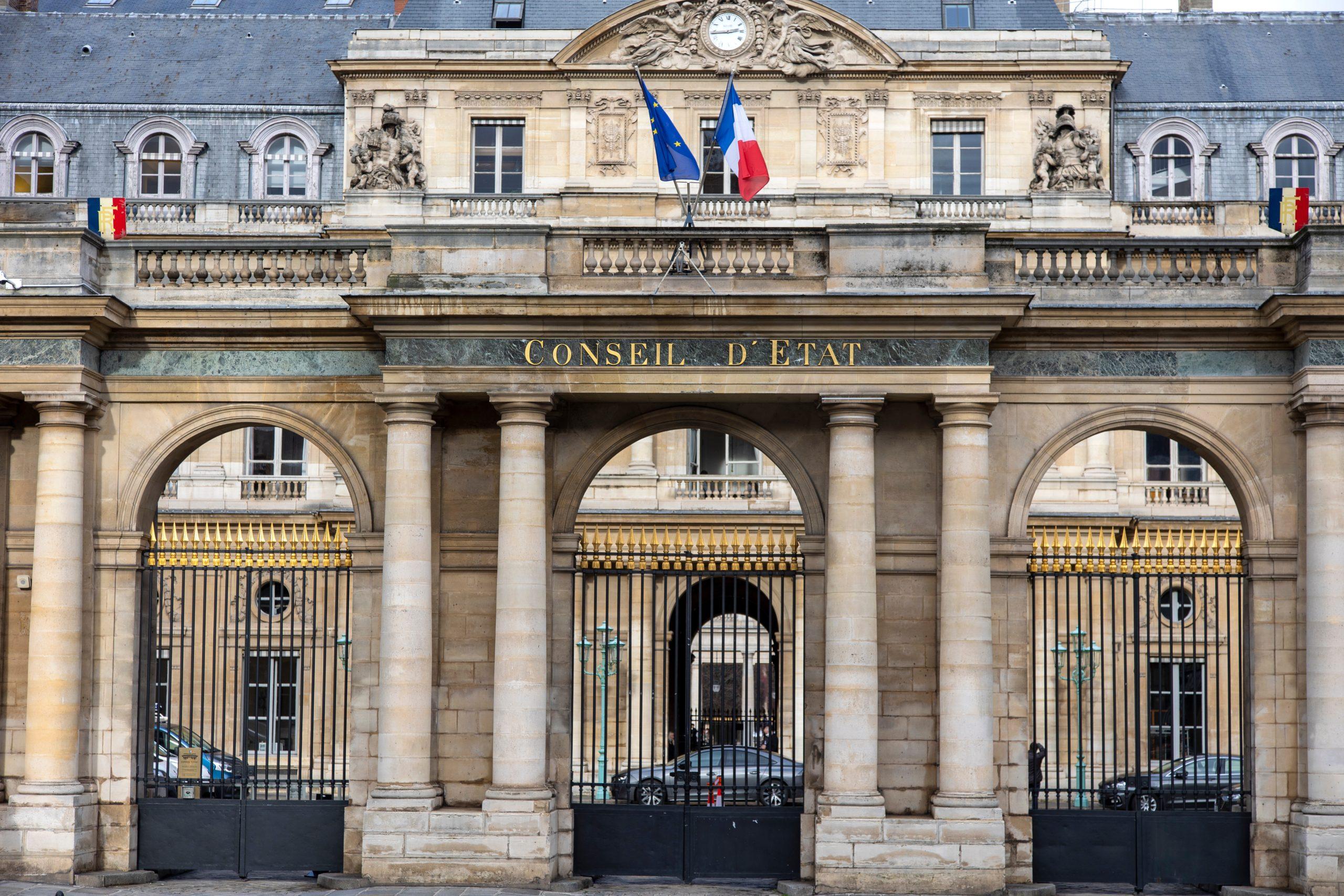France’s highest administrative court, the Council of State (Conseil d’État), has rejected two legal challenges aimed at overturning a ban on abayas — full-length robes worn by some Muslim women and girls — in public schools.
The court’s upholding of the abaya ban represents a setback, albeit a temporary one, for Islamist groups that have been encouraging Muslims to don Islamic clothing in public spaces to test the limits of France’s principle of state secularism, known as laïcité.
Observers warn that the fight against Islamist encroachment in France is far from over. French sociologist Florence Bergeaud-Blackler, an expert in the Muslim Brotherhood’s activities in Europe, told Focus on Western Islamism (FWI) that Islamists will continue to search for ways to reverse the ban. “It is clear that the Muslim Brothers will never give up this fight because the sexual division of labor (division sexuelle du travail) that Islamic clothing establishes is a pillar of the Islamic society they want to impose,” she said.

On August 27, France’s education minister, Gabriel Attal, announced that the government would ban students from wearing abayas in public middle and high schools. “I have decided that the abaya can no longer be worn in schools,” he said in an interview with TF1 television. “When you walk into a classroom, you should not be able to identify the religion of the pupils just by looking at them,” he explained.
Attal added that wearing an abaya in school was “a religious gesture, aimed at testing the resistance of the Republic on the secular sanctuary that the school must constitute.” He vowed that “where the school is tested, we must stand together.”
On August 31, in a memo addressed to 850,000 French public school teachers and the parents of 12 million pupils, Attal announced that qamis — the male version of the abaya — would also be banned from public schools in France.
Attal noted that the ban on abayas and qamis is aimed at forcing compliance with a March 2004 law that prohibits the wearing of conspicuous religious symbols — including the Islamic hijab or headscarf — in public schools in France.
The aim of the 2004 law was to bring the practice of Islam in France into conformity with the 1905 law on secularism (laïcité), which has failed to prevent the advance of Islamism in France. The 2004 law had been relatively successfully until October 2020, when a Chechen Islamist beheaded Samuel Paty, a French middle school teacher, over a dispute about freedom of expression.
Since then, French authorities have observed an exponential increase in “breaches of secularity” in public schools. A three-page intelligence document leaked to the newspaper Le Figaro in August 2023 revealed a “worrying increase” in “attacks” on secularism — in particular an “explosion” of religious symbols and outfits — in schools. The report noted that 4,710 complaints were filed during the 2022-2023 school year, compared to 2,167 in 2021-2022. “The 2022-2023 school year was marked by a sharp increase in the number of reports of attacks on secularism and the category of wearing signs and outfits not respecting the law of March 15, 2004,” the document stated.
French government spokesman Olivier Véran described the wearing of abayas as “a political attack” on secularism and said the increase is being fueled by Islamist influencers on social media. “When you make calls on social networks to come to public establishments with ostentatious clothing, you are engaging in politics, proselytizing,” he declared.
The abaya ban has been widely condemned by Islamist activists on social media as ‘Islamophobic.’
The abaya ban has been widely condemned by Islamist activists on social media as “Islamophobic.” One of the most vocal opponents of the ban has been 40-year-old Elias d’Imzalène, a self-styled “Muslim community influencer” who refers to himself as an “Islamian” rather than an Islamist. In an interview with Le Monde, he said the ban was part of an effort to “define secularism, and ultimately Frenchness, as the antithesis of Islam.”
D’Imzalène predicted the abaya ban will fail because France “has changed” and “become mixed.” He said the recent riots that engulfed the country “showed that that there is a Muslim youth that no longer wants to remain silent and bow down. This generation does not ask for its rights, it exercises them.”

French President Emmanuel Macron took to social media to defend the abaya ban. In an interview with a 26-year-old French Youtuber, who goes by the name HugoDécrypte and has more than a million followers, Macron said that “there is no room for religious symbols in the classroom” and that “the school must remain a neutral place.” Referring to Islamists, Macron said that “we live in a society in which a minority of people are hijacking a religion and challenging the French Republic and secularism.” He insisted that it was necessary for the government to be “uncompromising and clear” on the abaya issue.
On September 5, the Council of State rejected a lawsuit filed by Muslim Rights Action (Action Droits des Musulmans, ADM), which asked the court to suspend the ban. ADM, an Islamist human rights group established in 2015 to fight “Islamophobia,” argued that ban is an “illegal attack on freedom of worship” and “infringes the rights of the child, because it mainly targets children presumed to be Muslim, thus creating a risk of ethnic profiling at school.”
The court ruled that the wearing of abayas and qamis are “part of a logic of religious affirmation” and therefore prohibited in public schools. The court added that the ban “does not constitute a serious and manifestly illegal attack on a fundamental freedom.”
On September 25, the Council of State rejected a second lawsuit filed by two associations and a teachers union that sought to overturn the ban due to “the existence of serious doubt” about its legality. The court ruled that “there is no serious doubt about the legality of the ban.” The Council of State did, however, describe its ruling as a “provisional decision,” and informed that the court will render a final decision (jugement au fond or judgment on the merits) later, after an in-depth appraisal (instruction approfondie) of the issue.

Bergeaud-Blackler, the French Islam expert, told FWI that the court’s failure to render a definitive decision now creates legal ambiguity that Islamist groups will try to exploit with further lawsuits.
The French Council for the Muslim Faith (Conseil français du culte musulman, CFCM), and Islamic umbrella group that has refused to cooperate with the French government’s fight against Islamist separatism, argued that the ban creates “high risks of discrimination” and that it “reserves the right to refer the matter to the Council of State if the concrete application of this prohibitory measure results in forms of discrimination.”
Opinion polls show massive voter support for the abaya ban. A recent IFOP poll found that 81% of French people approve the measure and a large majority (70%) believe that abayas and qamis are religious garments. By contrast, two-thirds (66%) of Muslim respondents in the poll said they oppose the ban.
French Islamism expert Gilles Kepel, who was a member of the commission that recommended the 2004 ban on religious clothing in public schools, insists that the abaya ban has “nothing to do with stigmatizing Muslims in general” and everything to do with the government’s fight against political Islam. In an interview with Sud Radio, he said that the decades-long debate about Islamic clothing in France has always been fueled by the Muslim Brotherhood, which seeks to “mark its territory — young people — by enforcing the injunctions of sharia in their personal domain.”
Soeren Kern is a Middle East Forum Writing Fellow.
